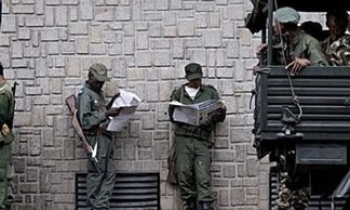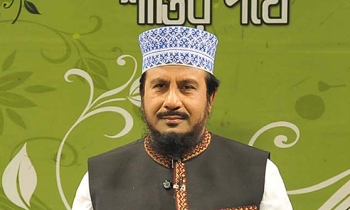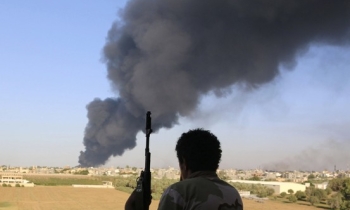The editor of a women's rights magazine in Afghanistan has been sentenced to two years in jail for blasphemy. Ali Mohaqiq Nasab, editor of Huquq-e Zan (Women's Rights), was convicted today after a court in Kabul concluded that several articles in his magazine were anti-Islamic.

Nasab, 50, was arrested on October 1 for publishing articles deemed blasphemous and anti-Islamic. One of the stories published in "Women's Rights" questioned the harsh punishment under Shari'a law for women found guilty of adultery, such as stoning. Another article argued that giving up Islam is not a crime. Nasab, a Shi'ite, was arrested following a complaint made to the country's Supreme Court by Mohaiuddin Baluch, religious advisor to Afghan President Hamid Karzai.
The judges in charge of the case accused him of intentionally publishing anti-Islamic articles and said he should be severely punished. Mohaqiq Nasab, who is also an Islamic scholar, denied the charges.
Rahimullah Samandar, the head of Afghanistan's Independent Association of Journalists, told RFE/RL (Radio Free Europe / Radio Liberty) that the country's Media Commission met on October 18 and concluded that Nasab did not insult Islam in his articles. The meeting was called following a request by Afghan media groups.
"In all the words by Mohaqiq Nasab, the commission members did not find anything to prove that he is an apostate or that he had insulted Islam deliberately. Therefore, the commission found him not guilty and just ordered that, from now on, he cannot work as an editor in chief or managing editor of a publication [because of lack of journalistic experience]," Samandar said.
According to Afghanistan's media law, journalists can be arrested only after their case is first reviewed by the Media Commission. In the case of Ali Mohaqiq Nasab, this process was not followed.

President Hamid Karzai signed the revised media law in March 2004 that carried over an existing ban on content deemed "insulting" to Islam. Criminal penalties for press offenses were left vaguely worded, leaving open the possibility of punishment in accordance with the conservative Shari'a law. When the law was signed, government officials said that journalists could only be detained with the approval of a 17-member commission of government officials and journalists.
Mohaqiq Nasab is not the first Afghan journalist to be picked up for alleged blasphemy. In 2003, two editors Sayeed Mahdawi and Ali Reza Payam of the Afghan weekly "Aftab" were also detained for allegedly publishing articles that criticised the political use of Islam by conservative leaders. They were later released on the orders of President Hamid Karzai, but had to flee the country because of threats against their lives.
"This is of grave concern," said Eleanor Smeal, president of the Feminist Majority, said shortly after Nasab was arrested. "The United States is telling the world that the US is supporting women’s rights and democracy in Afghanistan. Freedom of speech is fundamental to women’s rights and democracy."
A recent survey by a local media-development organisation found that the harassment of journalists in Afghanistan is on the rise. The study found that many of the threats and intimidation tactics used against journalists are initiated by warlords and government officials.

Samandar told RFE/RL, "Article 31 of Afghanistan's media law should be [toned down]. It includes the issues that journalists are not allowed to write about. Journalists cannot write about Islamic issues, about religion. It should be [changed]. It is necessary for the freedom of journalists. In addition, international organisations which defend freedom of expression should put the Afghan government under pressure so that there is less pressure on journalists inside the country."
The Ulema Council, a body of top Islamic clerics, had reacted strongly against the articles. "The Ulema Council sent us a letter saying that he should be punished so I sentenced him to two years' jail," Judge Ansarullah Mawizada told the Associated Press. Nasab said that he did not recognise the court and did not accept its verdict.
Under traditional Shari'a, apostates and murderers should be executed, a thief have a hand amputated and adulterers be publicly stoned. Such practices were common during the rule of the Taliban from 1996 until their 2001 overthrow by US-led forces for harbouring the Al-Qaeda network. Although Afghanistan is still an Islamic country and retains Shari'a law, its punishments are rarely enforced, and Islamic scholars have often voiced anger about this.









